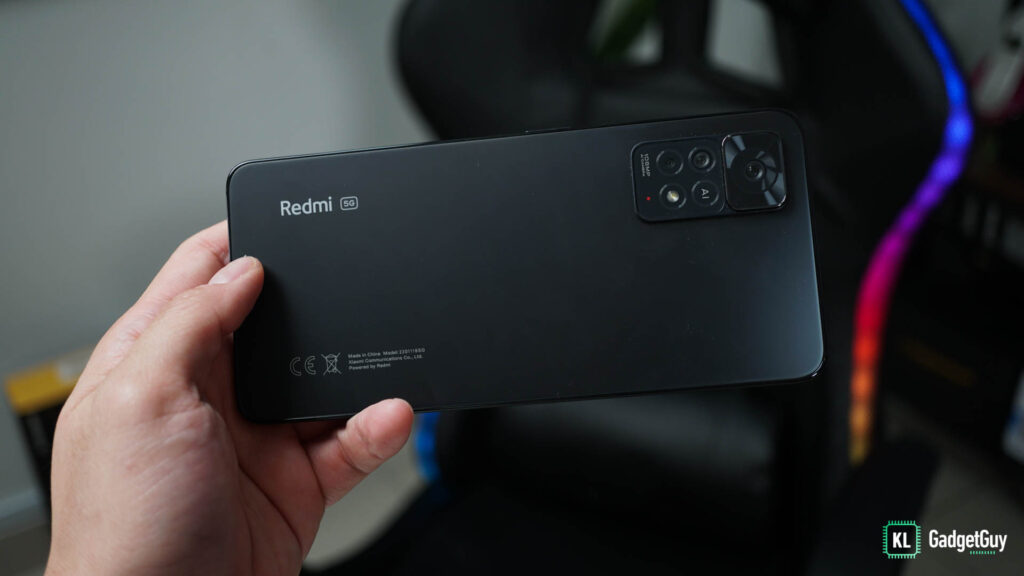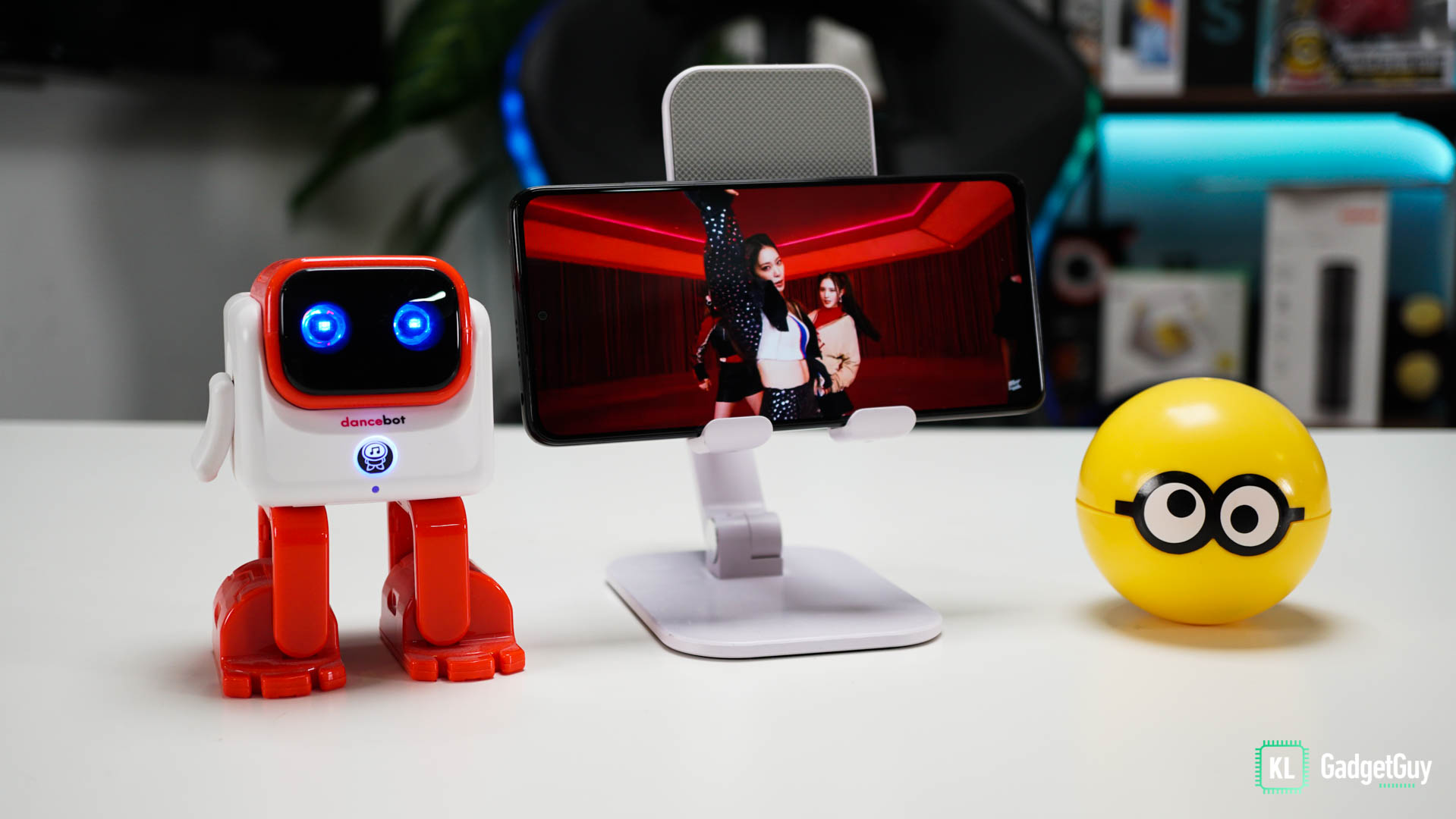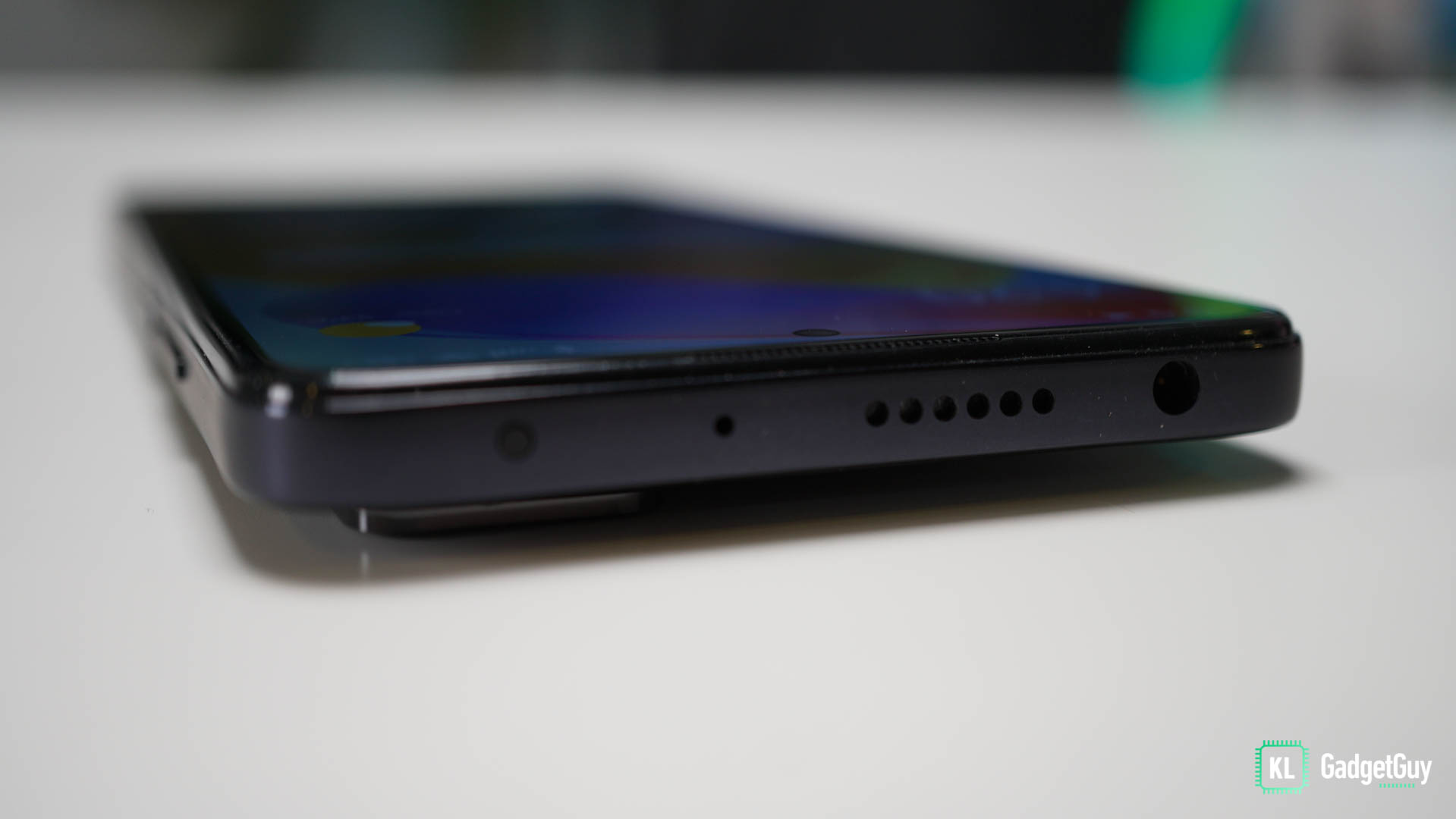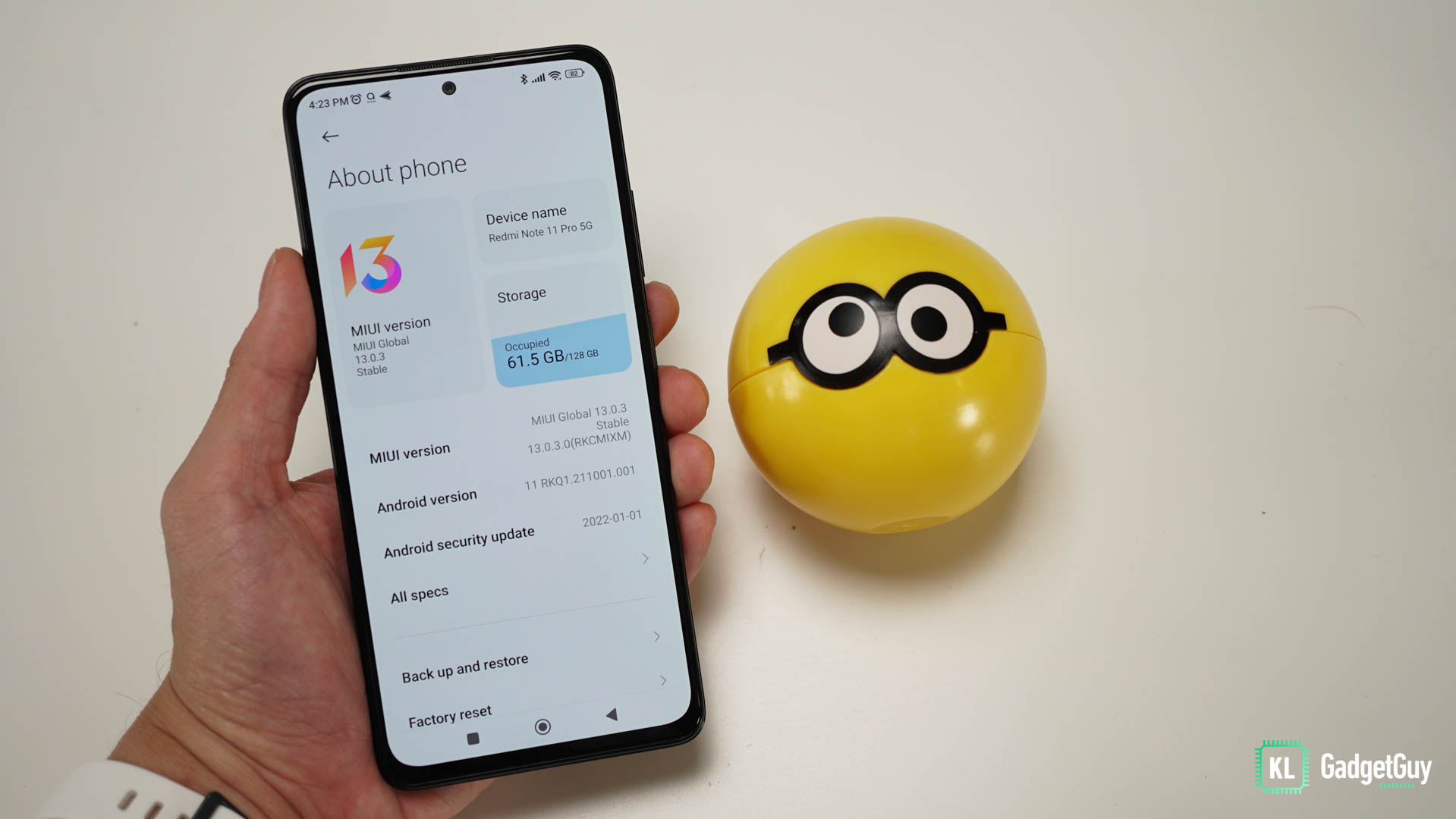Every time Xiaomi releases a new Redmi Note phone, I tend to jaw drop when I see how much expensive features that the company has packed into such a budget device, and this time it is no different with the Redmi Note 11 Pro 5G, which is the leading model of the Redmi Note 11 series that undercuts the competition for RM1,199 with features such as 67W fast charging, 108MP camera and a capable Snapdragon 695 5G processor, this is probably one of the best 2022 mid-range phones I have got to use over the last three weeks.
Compared to its other siblings, the Redmi Note 11 Pro 5G has noticeably better build quality with an aluminum and glass back, and I like the fact that it uses a frosted back rather than a glossy one that prevents fingerprints and smudges, it also has a more boxy look with no tapered edges but fortunately feels very comfortable to grip and hold.
With a 6.67-inch AMOLED display that refreshes at 120Hz, the Redmi Note 11 Pro 5G is an excellent device for media consumption with it’s nicely saturated colors and good brightness even at outdoors, the refresh rate is consistent and I have not detected any issues with apps I use on a daily basis, even the polling rate is decent which allows me to type fast on it, the haptics motor is also notably better than the Redmi Note 11s and feels like a touch rather than being an actual strong vibration.
I commend the stereo speakers of the Redmi Note 11 Pro 5G, similar to its siblings, they are positioned at the top and bottom of the frame which can offer a better soundstage than the usual earpiece and bottom placement, these speakers are one of the best I have heard on a mid-range device and they support Dolby Atmos, which makes movies a lot more enjoyable than other mid-range phones with stereo speakers. Also, it still comes with an IR blaster for controlling home appliances, which is rarely available on flagships these days.
The Redmi Note 11 Pro 5G ships with MIUI 13 that’s based on Android 11, though nothing much has changed on the surface, I do realize that the software experience is less buggy than I have experienced back on MIUI 12.5, memory utilization is noticeably better with lesser app restarts and the Snapdragon 695 chip keeps up with my heavy app switching activities.
However, there is only one annoying issue that I continue to face during the period and has since persisted in previous MIUI versions, Spotify will always show a message that it isn’t working every time I use it on Android Auto, which can be easily resolved by manually launching the Spotify app on the phone but still, I get frustrated every time when I have to deal with it.
Also, I am a little underwhelmed that the phone didn’t come preloaded with Android 12, by all means it isn’t a deal breaker but you will have to miss out the improved privacy controls and sleeker UI animations that it introduces, and Xiaomi has not committed to a future date for a major software update.
Gaming performance wise, the Redmi Note 11 Pro 5G will do fine if you don’t push the graphics settings and can settle with the standard 30 FPS in games, like most other phones out there the phone tends to get warm after you game for extended periods but doesn’t scalp your hands. In gaming benchmarks, the phone scored 1207 marks and an average FPS of 7.2 in 3DMark, which is expected from a mid-range device.
Xiaomi boasts a lot about the 108-megapixel main camera of the Redmi Note 11 Pro 5G, the company even considers it as a ‘flagship-grade’ camera but in reality, you should really keep your expectations low. Granted, the main camera produced decent image quality for mid-range phone standards, but the flaws are noticeable once you put these photos on a big 4K display as you can notice grain and noise even when they are taken in good lighting conditions, low light image quality shot using Night mode is also average but serviceable for social media.
Redmi Note 11 Pro 5G Camera Samples
Overall, this isn’t something you should expect out of a ‘flagship-grade’ camera that uses pixel-binning tech, and this is due to the fact that Xiaomi uses a fairly small 1/1.52″ sensor size for its main camera. As a comparison, the more expensive Galaxy S22 Ultra 5G has a much larger sensor size at 1/1.33″.
The Redmi Note 11 Pro 5G’s front 16MP camera is fortunately decent in my books, though it isn’t the best in class and you might be better off with phones from OPPO and Vivo if you are particular about front cameras.
Battery life has never been the Redmi Note’s weakness, the Redmi Note 11 Pro 5G’s 5000mAh battery will easily offer you a full day of usage with 5 hours of screen-on-time even when you have 120Hz refresh rate turned on. However, what I am really happy is that the phone isn’t limited to Xiaomi’s proprietary fast charging protocol, it also supports USB PD charging at 30W, which is really convenient if I don’t have access to the included 67W charger.
Overall, the Redmi Note 11 Pro 5G maintains its key selling point of having a large beautiful screen and battery that the lineup has always been famous about, it just simply isn’t enough to be a worthy successor to the Redmi Note 10 Pro, not unless you appreciate 5G connectivity and faster charging speeds, but if you are looking for a best for the buck mid-range phone with a flagship-grade build quality, the Redmi Note 11 Pro 5G is the definite choice.
The Redmi Note 11 Pro 5G is available in 6GB+128GB and 8GB+128GB storage variants, retailing at RM1,199 and RM1,299 respectively, it can be purchased here.




